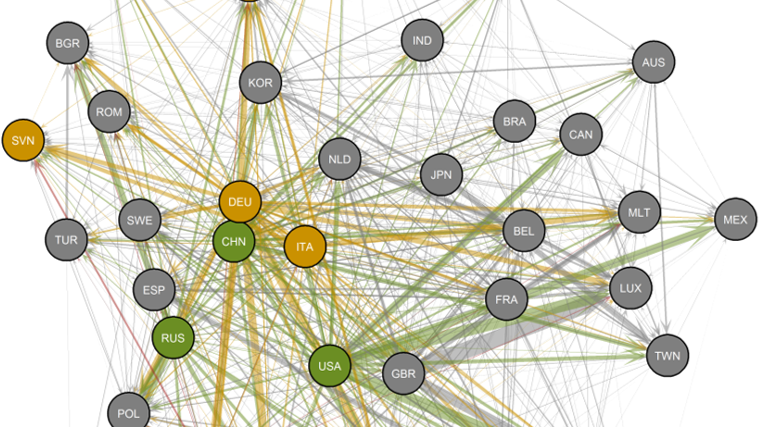Climate Change Impacts and Climate Economics
In addition to rapid transformation towards a climate-neutral economy and society, there is also a need to adapt to the unavoidable and clearly noticeable consequences of climate change.

Flood Protection, Credit: JOANNEUM RESEARCH/Schwarzl
One requirement for optimal adaptation is a detailed understanding of the expected effects. Only then is it possible to identify the greatest risks and potential opportunities.
We are therefore dedicated to
- the detailed analysis of climate change impacts, whether they be local or global, at company level, or at the level of the macroeconomy
- the development of products and solutions for businesses and policymakers so as to enable evidence-based action.
Climate Change Impact Assessment
Damage due to extreme weather events, heat-related risks to health and labour productivity, infrastructural damage, and agricultural risks due to crop failures or late frost: climate change has a wide range of impacts at the national to local level and these have various macroeconomic consequences. Using a mix of quantitative (e.g. "value at risk") and qualitative methods, we evaluate risks, losses and opportunities in a wide range of areas at the global and local level.
At the same time, we recognise that the impacts of climate change, such as crop failures, rises in sea level, or decreases in labour productivity, can all be transmitted internationally via trade and thereby affect the EU and Austria. Using multi-regional input-output analyses, and extended so as to capture environmental and resource concerns, we examine these risks and quantify the cross-border impacts on Austria and the EU.
Climate Services
The effects of the already ongoing climate changes are becoming more and more visible and tangible. Pursuing the path towards a climate-resilient economy and society, we research and develop customised, user-friendly products and tools that support adaptation to climate variability and change, i.e., our Climate Services. These Climate Services provide a wealth of climate data and information for decision-makers in a wide range of sectors.
In addition to developing climate services - often in the form of a participatory co-design process with future users and stakeholders from research and industry - we also evaluate their related benefits for individual users, the national economy and society.
Risk Perception and Stakeholder Participation in Climate Risk Management

Credit: JOANNEUM Research/Schwarzl
This might interest you:
Integrated risk management takes account of all stakeholder perspectives.
Climate Economics and Economic Impact
To solve the climate crisis, fundamental decarbonisation of our economy is necessary. This not only requires technological changes, it also needs to be accompanied by suitable climate policy measures, such as taxation of carbon emissions.
What potential do innovative technologies and climate policy instruments have?
We answer this question by employing macroeconomic tools such as input-output analysis, computable general equilibrium models and econometrics.
In this way specific indicators may be identified with respect to:
- Emissions reduction
- Economic efficiency
- Social equity and economic performance
Particular attention is given to distributional effects and to the mitigation of negative effects on vulnerable groups and on the socially disadvantaged.
Analysis of Global Value-added Chains
In recent decades, the internationalisation of supply chains has increased significantly. The production processes of industries and companies are increasingly being split into numerous stages and allocated across several countries.
Nowadays, international trade and competition increasingly take place at the task level rather than the industry level. This leads to great interdependencies in the global trade and production network. Particular attention therefore needs to be placed on this when assessing any transformation towards a climate-neutral society and the impacts of climate change .
Using global multi-regional input-output analyses, we demonstrate how regional climate policies, innovations in technology and production, and the diverse impact of climate change across regions, all unfold in the global economy. Specifically, we analyse impacts on resource use, competitiveness, trade relations, employment and economic performance.




